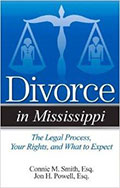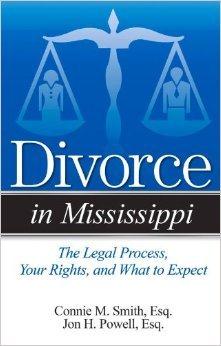REPORT FROM COUNSEL
SPRING 2010 ISSUE
REAL ESTATE ROUNDUP
Condominium Buyers Cannot Revoke Contract
In 2005, a married couple signed a contract with a builder to purchase a unit in a condominium building that was being developed in a luxury resort community. The contract specified that the condominium would be built within two years, although the contract included a "force majeure" provision that allowed for delays under certain circumstances. The contract also specifically waived the buyers' right to speculative, punitive, and special damages.
After the housing bubble burst, the buyers had second thoughts about their decision to purchase the condominium unit. Wanting out of the deal, they seized upon the Interstate Land Sales Full Disclosure Act, a federal statute that has become, in the words of the court that heard their case, "an increasingly popular means of channeling [a] buyer's remorse into a legal defense to a breach of contract claim."
Just three weeks before the condominium was completed-ahead of the two‑year deadline in the contract, in fact-the buyers gave the builder notice that they were terminating the contract because the builder had failed to provide them with a property report as required by the Disclosure Act. They also demanded the return of the substantial deposit they had paid.
The builder refused, and a federal appellate court sided with the builder. The contract between the parties fit within an exemption set out in the Disclosure Act that applies to "the sale or lease of any improved land on which there is a residential, commercial, condominium, or industrial building, or the sale or lease of land under a contract obligating the seller or lessor to erect such a building thereon within a period of two years."
The buyers could have waited and hoped that the builder did not finish by the deadline, at which point they could have rescinded the contract, demanded their money back with interest, and recovered any actual damages that they had suffered. As for the force majeure clause in the contract, it covered unlikely events, such as acts of God and labor strikes. It did not render "illusory" the builder's contractual duty to complete the condominium within two years.
Lapsed Flood Insurance
Hurricane Katrina destroyed Merlin's house in August of 2005. About two weeks before Katrina hit, he had missed a deadline to pay a premium to keep his flood insurance policy in effect for 2005 to 2006. After Katrina, the Federal Emergency Management Agency extended a grace period of 90 days for paying premiums to keep policies in force.
When Merlin submitted a claim under the policy shortly after Katrina, his insurer told him that he would be covered and even sent a small advance check for the claim. Merlin had many telephone calls with the insurer's representatives during this period, but none of them told him a critical fact: Any payments under the policy were conditioned on Merlin later paying the delinquent premium by the extended due date. When that date came and went without the payment having been made, the insurer demanded the return of its advance payment and told Merlin that he had no coverage.
Merlin sued the insurer for the state law claim of negligent misrepresentation. The insurer responded that such a claim was foreclosed, or "preempted," by federal law. The insurer was relying on legal authorities stating that certain tort claims against an insurer participating in the National Flood Insurance Program are preempted. However, only tort claims arising from the "handling" of insurance claims are preempted. The federal appellate court considering Merlin's lawsuit ruled that it could proceed.
When the alleged misrepresentation happened, Merlin only held the status of a former, and a potential future, policyholder. If the case was about a "claim" at all, it was a legally fictitious claim, because the policy had expired. Since his dispute with the insurer was really about whether he could even have a policy at all, Merlin's negligent misrepresentation claim stemmed from the procuring of insurance, not from the "handling" of a claim.
Misrepresentation About Water Damage Is Not "Property Damage"
About a year after a married couple sold their home, the buyers sued them for fraudulent misrepresentation. The buyers contended that the sellers had falsely represented that the home had no moisture or water problems, no damage due to flooding, and no problems with its foundation. The sellers, in turn, asked a state court to declare that the carrier on their homeowners insurance policy was obligated to defend and indemnify them against the buyers' lawsuit.
A state court ruled that the sellers' insurer was within its rights to deny that there was coverage under the policy with the sellers. As with so many disputes over insurance coverage, the meaning of the terms used in the policy was crucial. The homeowners policy covered an occurrence that resulted in either bodily injury or property damage. An "occurrence" was defined by the policy as "an accident that results in damage."
The court conceded that the commonplace use of the term "occurrence" in insurance policies generally has the effect of broadening coverage and removing the need to find an exact cause of damage, so long as damages are not intended or expected by the insured. However, the bottom line is that the occurrence must still stem from an accident.
An accident, by nature, is an unforeseen occurrence of an untoward or disastrous character, or, put a little differently, an undesigned sudden or unexpected event of an inflictive or unfortunate character. In the litigation against which the sellers wanted the insurer to defend them, the gist of the allegations was that the sellers had made false statements, not that they had caused property damage by means of an occurrence/accident.
The sellers would have to defend themselves without the assistance of their homeowners insurance company.
BUSINESS LOANS CANNOT REDUCE ESTATE TAXES
A section of the federal Internal Revenue Code authorizes estate tax deductions for qualifying interests in family‑owned businesses. For the deduction to apply, the value of the interest in the business held by a person at the time of his or her death must exceed 50% of the total value of the person's adjusted gross estate. This is known as the "50% liquidity test."
Probably on the basis of creative, but dubious, tax advice, each of the estates of a husband and wife claimed deductions under this provision of over $600,000, based on loans made to a family‑owned corporation. The question thus arose as to whether an "interest" in the business entity includes a loan made to that entity. Only if there was an affirmative answer to this question could the deduction apply. Unfortunately for the two estates, the U.S. Tax Court and then a federal appeals court answered in the negative.
The federal appeals court conceded that, in a very loose sense, a person who loans money to a business has an interest in the business, but only in that he or she looks to the business to repay the debt. When Congress used the words "interest in an entity" in the deduction provision, it meant that the person whose estate is claiming the deduction has an ownership interest in the entity. In the court's words, "it strains common understanding to say that a person holds an interest in an entity merely because he or she is a creditor of that entity."
AMERICANS WITH DISABILITIES ACT AMENDMENTS
The Americans with Disabilities Act Amendments Act (ADAAA), which went into effect last year, was a legislative response to U.S. Supreme Court precedent. The ADAAA generally makes it easier for some employees to establish themselves as "disabled" and to require accommodations from their employers. Recently, the Equal Employment Opportunity Commission (EEOC) fleshed out the import of the ADAAA when it issued new regulations and an interpretive guidance.
The following are some of the important ADA issues addressed by the ADAAA and its implementing regulations.
"Regarded As" Claims
There remain three ways to be "disabled" for ADA purposes: by having a physical or mental impairment that substantially limits one or more major life activities; by having a record of such an impairment; or by being regarded as having such an impairment. The bar has been lowered for making out a "regarded as" claim.
It used to be that a plaintiff had to establish that because of a mistaken belief about the individual's impairment, the employer regarded him or her as either unable to perform or severely restricted in performing some major life activity. Now, under the more relaxed standard, the plaintiff need only show that the employer believed that the individual could not perform the particular job at issue.
Major Life Activities
The thrust of the new rules is that the determination as to disability should be tilted in favor of broad ADA coverage and should not require extensive analysis. An individual's ability to perform a major life activity will be compared to most people in the general population, often with more reliance on common sense than on scientific or medical evidence. It is enough for disability status if only one major life activity is substantially limited.
The original ADA and its regulations mention a number of major life activities, substantial limitations of which can lead to a finding that a person is disabled. These include such things as caring for oneself, performing manual tasks, seeing, hearing, eating, speaking, and walking, among other things.
Curiously enough, considering that the ADA is meant to prohibit a type of employment discrimination, before the latest legislation and regulations came into effect, the federal appellate courts were divided over whether "working" was a major life activity. Now that question has been answered in the affirmative.
The new measures add reaching, sitting, and interacting with others to the ADA's list of specific major life activities. Cardiovascular and lymphatic systems, and functions of the skin and special sense organs, have been added to the list of the major bodily functions that comprise a sub‑category of major life activities.
Mitigating Measures
Previously, a person was not impaired for ADA purposes if his or her impairment could be mitigated, such as by medication or medical devices. Under the new regulations, such positive effects of mitigating measures are ignored in determining whether an impairment is substantially limiting.
Episodic Impairments
The ranks of potential plaintiffs under the ADA will also increase because of the rule applicable to those with an impairment that is episodic or even in remission, such as epilepsy, hypertension, multiple sclerosis, asthma, diabetes, and some mental illnesses. In such cases, an individual is disabled if, when the condition is active, the individual is substantially limited in a major life activity.
Per Se Disabilities
To head off a prolonged argument over whether an individual is disabled in the first place, and proceed to the consideration of possible accommodations by an employer, the new regulations effectively declare certain conditions to be per se disabilities. Examples include blindness, deafness, intellectual disabilities, missing limbs, and any mobility impairments requiring a wheelchair.
Conclusion
Up until now, many ADA plaintiffs lost on the threshold issue of whether they were even "disabled" within the meaning of the ADA, rendering other issues moot. In the future, many more such plaintiffs will successfully cross the first hurdle. This will lead to more consideration and the fleshing out of such thorny ADA issues as whether the employer acted with a discriminatory motive, whether the employer met its duty to accommodate the disabled person, and whether different treatment of the disabled person could be justified by a significant risk of substantial harm to the person or to others in the workplace.
E‑MAILED DOCUMENTS ALLOWED
Shortly before he left the employment of a residential treatment center for addicted persons, an employee e‑mailed some of his employer's documents to his and his wife's personal e‑mail accounts. The employee operated two consulting businesses of his own concerning addiction rehabilitation services. The employer's documents, including its financial statement and the names of past and current patients at the center, could have been useful to those businesses.
When the employer discovered that the documents had been e‑mailed, it sued the then‑former employee under the federal Computer Fraud and Abuse Act (CFAA). The CFAA provides civil remedies for knowingly accessing a protected computer without authorization or for exceeding authorized access. A federal appellate court ruled in favor of the employee.
The language in the CFAA prohibiting the accessing of a computer without authorization means that the person has not received permission to use the computer for any purpose (such as when a hacker accesses a computer without permission), or when a computer owner, such as the employer, has rescinded permission and the defendant uses the computer anyway. Neither scenario describes what happened in the case before the court.
The employee, so long as he remained employed, had permission to access and use the company's computers. There was no written employment agreement or set of guidelines for employees that might have prohibited or restricted employees of the company from e‑mailing the company's documents to personal computers. If keeping in‑house documents in‑house was a priority for the company, it would have been wise to incorporate appropriate restrictions on computer access and use by employees into an agreement or personnel policy.
CREDIT CARD ACT
Recently, the Credit Card Accountability, Responsibility, and Disclosure Act of 2009 (the Credit CARD Act) went into effect. Congress saw a pressing need to protect consumers from abusive fees, penalties, interest rate increases, and other unjustified changes in the terms of credit card accounts. A new hike in the penalties for violators of the Act will provide extra incentive for compliance.
A few of the highlights of the Act are:
• The Act prohibits rate increases on existing balances due to "any time, any reason" or "universal default," and severely restricts retroactive rate increases due to late payments.
• Contract terms must be clearly spelled out and must remain in place for all of the first year. Companies may continue to offer promotional rates with new accounts or during the life of an account, but these rates must be clearly disclosed and must last at least six months.
• Institutions are required to give credit card holders a reasonable time to pay the monthly bill-at least 21 calendar days (up from 14) from the time of mailing.
• Credit card companies are required to apply excess payments first to the highest interest balance (usually for new purchases), as most consumers would expect them to do but which some companies have not done because it is not as profitable.
• The Act ends the confusing practice by which issuers use the balance in a previous month, even if all or a part of it was paid off, to calculate interest charges on the current month. Many consumers likely were not even aware of this particular practice, called "double‑cycle" billing.
Credit card holders will find it easier to avoid over‑limit fees because institutions now have to obtain a consumer's permission to process transactions that would place the account over the limit. So that consumers can better avoid unnecessary costs and manage their finances, creditors must give consumers clear disclosures of account terms before consumers open an account and clear statements of the activity on consumers' accounts afterwards.
The Act contains new protections for college students and young adults, formerly a favorite target for blanket marketing of credit cards. Among other things, there is a new requirement that no card be issued to anyone under 21 unless he or she submits a written application, with either the signature of a co-signor over 21 or information showing independent means for repaying the credit card debt.
CAR DEALERS CLASH WITH WEBSITE
In a variation on a familiar phrase, a federal trial court effectively has ruled that, in the context of a website posting customers' reviews of their retail buying experiences, "you can't blame the message board."
In the case before the court, the defendant was an online consumer affairs company that allowed third parties to post commentary on the company's website about their impressions of various businesses. The plaintiffs were a group of franchised car dealers who went on the offensive because of several less than complimentary reviews of their dealerships by customers who posted reviews on the website.
The dealerships' claims of defamation and tortious interference with business expectancy failed because of a provision in the federal Communications Decency Act. The statute, by its plain language, creates a federal immunity to any cause of action that would make providers of any interactive computer service liable for information originating with a third‑party user of the service. Specifically, the law precludes courts from entertaining claims that would place a computer service provider in a publisher's role.





